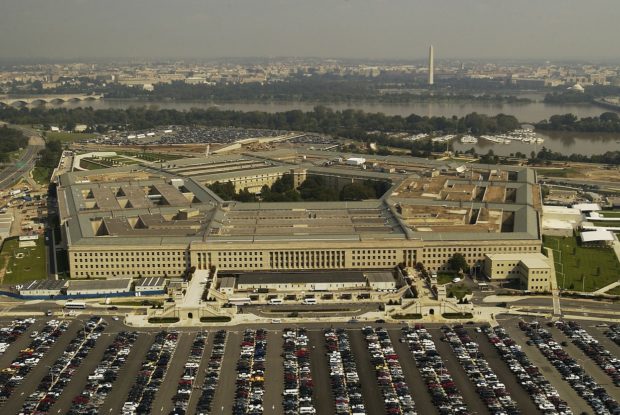Pentagon Recycles Discredited Rationales For Trans Ban
SAN FRANCISCO, CA—April 30—Military experts today questioned why the Defense Department is reiterating defenses of the transgender service ban that were discredited by the American Psychiatric Association and further undermined in a recent Transgender Military Service Commission report co-authored by former Surgeon General Joycelyn Elders.
A cover story in the Washington Post this weekend focused on the ousting of a highly regarded transgender sailor, Landon Wilson. In the article, Pentagon spokeswoman Lt. Col. Cathy Wilkinson indicated that the military has no plans to lift its ban even though the psychiatric community has reversed its determination that gender nonconformity is a mental disorder. Explaining the rationale for the Pentagon’s discriminatory policy, Wilkinson declared that “Service members must serve in austere environments, many of which make necessary and ongoing treatments related to sex reassignment and many other conditions untenable.”
A day later, the Pentagon issued a revised Human Goals Charter that applies to gay, lesbian and bisexual troops but not transgender ones. Asked by the Washington Blade why the document excludes gender identity in its definition of diversity, Lt. Cmdr. Nathan Christensen shared the same statement as Wilkinson, adding that to “meet the needs of the services,” the force requires “the ability to deploy to and serve in austere environments with limited (and perhaps no) access to medical care for prolonged periods on little or no notice.”
Retired RADM Alan M. Steinman, MD, who served as the top medical official in the Coast Guard as well as co-chair of the Transgender Military Service Commission, said the Pentagon’s rationale is invalid. “There are glaring inconsistencies between the way the military deals with transgender personnel and how they deal with everyone else,” he said. “We looked in great detail at the medical risks of deploying transgender troops and found that meeting their health care needs is no more difficult or risky than meeting the medical needs of anyone else.”
Aaron Belkin, director of the Palm Center, which established the Commission, noted that President Obama has the authority to end the ban on transgender service through executive action. “The Pentagon is using old talking points that no longer reflect today’s medical consensus,” Belkin said. “ What is unclear is if the Pentagon’s outdated rationale and discriminatory policy reflect the views of the President and his administration.”
Nathaniel Frank, a historian and expert on military personnel policy, said the Pentagon has developed a troubling pattern of leaning on discredited rationales for the transgender ban. “Now that ‘don’t ask, don’t tell’ is gone and the sky didn’t fall,” said Frank, “observers are pointing out that the transgender ban is based on the same myths and prejudices that propped up the gay ban. That didn’t hold up, and this won’t either, and the Pentagon is increasingly on the defensive about it.”
The Elders-Steinman Commission report noted inconsistencies in the treatment of transgender troops, who the Pentagon bars under the guise of requiring burdensome medical treatment even though most do not, at the same time that tens of thousands of non-transgender troops are tolerated despite having extensive medical needs. Over 100,000 non-transgender Army troops took antidepressants, narcotics, sedatives, antipsychotics and anti-anxiety drugs in 2012, and over 30,000 reported prescription anabolic steroid use during the previous year, according to the report, released in March.
